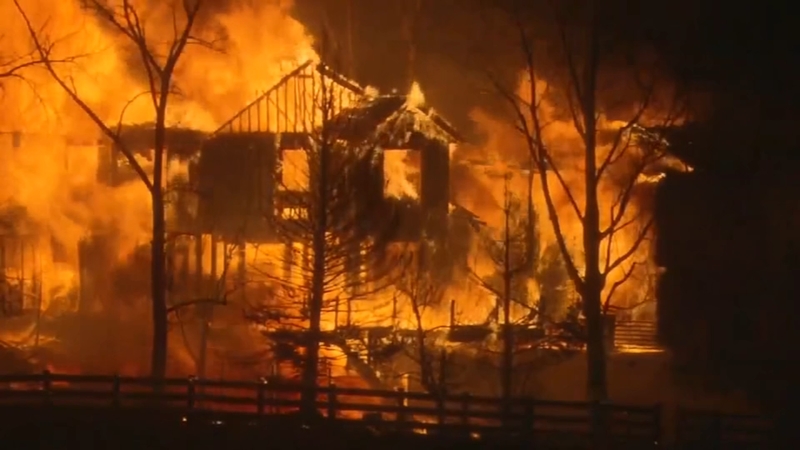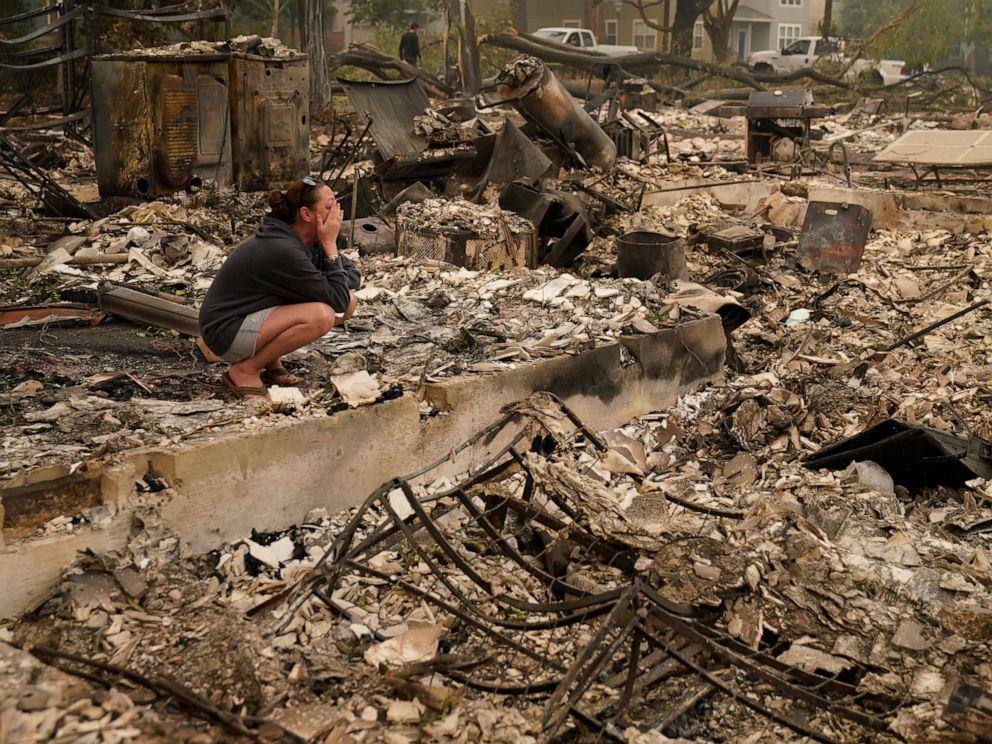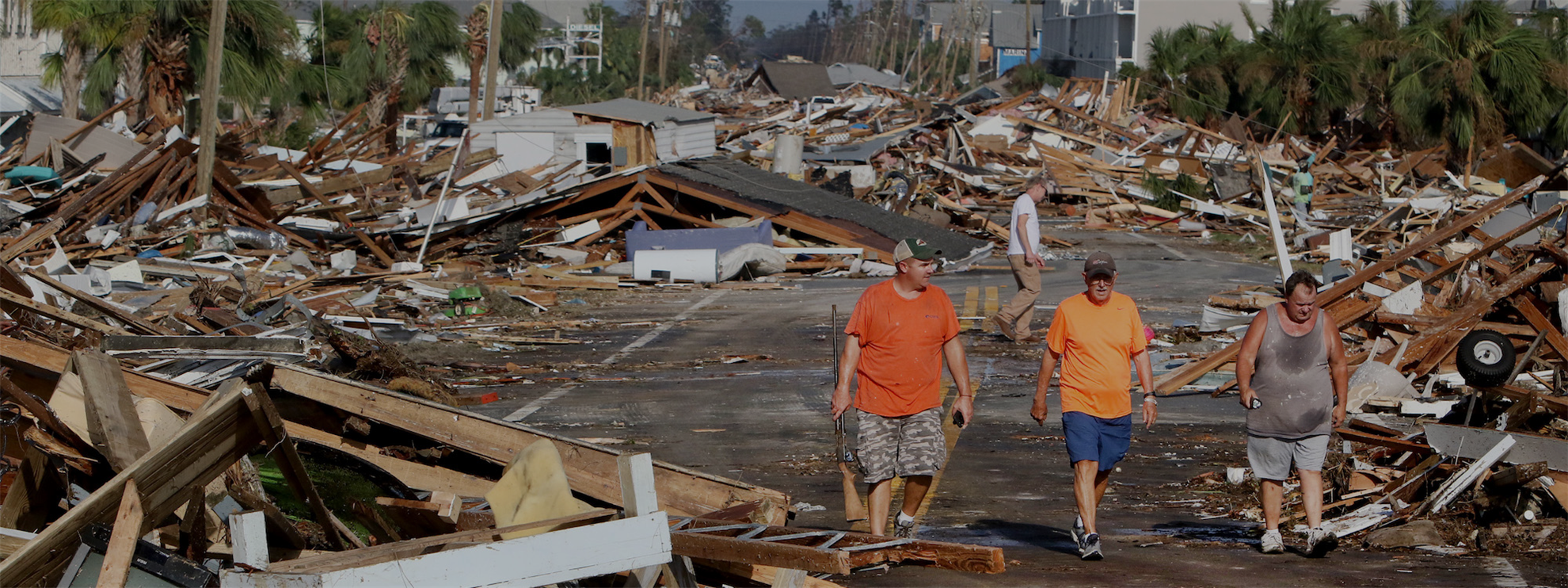ROTARY DISTRICT 5450 NATURAL DISASTER RESPONSE COMMITTEE

BOULDER COUNTY FIRES -
Over 1,000 homes were lost in the Superior, Louisville, Marshall, and Lafayette areas, and 6,200 acres were effected. Record high winds fueled the flames. The District is working with Boulder Rotarians and many others in the surrounding area to determine the best use of the $100,000+ donated funds and will provide updated information.
SOUTHERN OREGON WILDFIRE RELIEF

District 5450 Rotarians have sent $5,000 to the United Clubs of Southern Oregon - this amount has been matched 1:1 bringing the current donation total to $10,000. This money is being used for the “tools and equipment response.” Grants of up to $1000 each have been awarded to small businesses to replace the tools of carpenters, machinists, mechanics, and others so they can re-start.
The District 5450 response to the Southern Oregon fires of September, 2020 has successfully been completed. We have completed the cycle: appeal for funds, project identified, funds dispersed, project executed, project post-appraisal completed. Please see the accompanying video to learn first-hand about the differences our donations made. https://www.youtube.com/watch?v=aUCz6gtK6fs&feature=youtu.be
ABOUT US: NATURAL DISASTER RESPONSE COMMITTEE

The District 5450 Natural Disaster Response Committee (NDRC) was created in July of 2019. Through the efforts of this committee, we will be able to provide a systematic, cost effective, and sustainable response mechanism for Rotarians and Rotary Clubs inside of District 5450 when disasters arise.
Whether they are local, regional, national or international, disasters such as floods, fires, earthquakes, mudslides, tornados, and hurricanes have a life changing impact on Rotarians and their communities. The Natural Disaster Response Committee will work with Rotarians and Rotary Clubs local to those disasters to identify ways that we can provide effective financial assistance to assist those communities.
Our Process
Our committee follows the general principle of RAD (Relief, Assistance, Development) Disaster Response. Our primary interests focus on supporting the Assistance and Development stages of the response by the Rotary Clubs in and partnering with the affected community.
The following is more information about the RAD Disaster Response Process:
R: Relief
Relief efforts tend to be an immediate and short term efforts to respond to the needs of the community as the disaster is happening or immediately thereafter. Examples could be rescue operations, shelter assistance, etc.
A: Assistance
Assistance efforts are mid term response efforts focused on assisting the affected communities in normalizing their lives as much as possible. Examples could include temporary relocation and medical needs.
D: Development
Development efforts are the long term actions of the affected community’s leaders and partners to help them rebuild and return to a state of normalcy.
Our Core Principles
- Response activities should be “Rotary to Rotary.” District 5450 Club members can contribute money, supplies, or volunteer efforts directly from our District to Clubs or Rotary Districts in the affected communities. This program does not preclude a Rotary member or Club acting on their own; rather it provides a larger, organized “umbrella” that can be more controlled and targeted.
- The indigenous perspective, reflecting the “felt needs” of the intended beneficiaries, must be paramount. Any donated money, supplies or equipment must meet these needs. Rotarians in the affected communities will relay these needs to us.
- Donations of funds are preferred to supplies and equipment, which the NDRC cannot administer. Once funds have been sent, regular on-site communications with donors and recipients is maintained. Rotary point persons/champions “at each end” will be key.
- Each Club within the District is being asked to designate a person who can serve as “point” when disaster responses are being considered. There is no obligation for a Club to participate. Assistant governors will serve as liaisons for Clubs within their jurisdictions.
- In any natural disaster, first- and second-responder relief efforts are paramount; the NDRC will not interfere (or suggest member involvement) in this regard. Once systematic post-disaster evaluations have been completed, targeted District 5450 responses can be undertaken. While the Rotary point persons “at each end” will be key, any District Rotarian or Rotary Club can suggest a disaster that should be tackled. The NDRC will review these requests, and in conjunction with the District Governor, make a “go/no go” decision. Further recommendations for later, follow-up efforts involving the same disaster also will be welcomed.
- A paramount principal in all of our Rotary response efforts after the first immediate aid, is focusing on giving a “hand up” rather than a “hand out.”
- Collaborative efforts with other reputable organizations and NGOs such as the Red Cross/Red Crescent, Project CURE, and ShelterBox are being encouraged. However, Rotary will not duplicate or replace efforts or programs that are underway or that should be initiated by other NGOs or by governmental agencies.
- Each response effort will be documented, with the results made available to all interested Rotarians and others.
Spread the Word!
We sincerely appreciate you and everything you’re currently doing for our local, regional, national and international communities, not to mention all of your work for the various clubs in Rotary District 5450.
Any assistance you can provide us in spreading the word about our committee and our plans would be appreciated!
.png)












